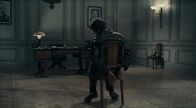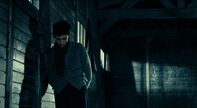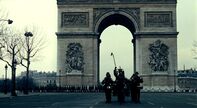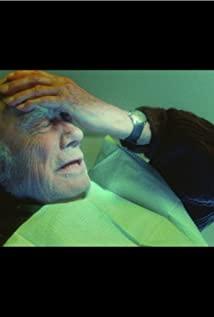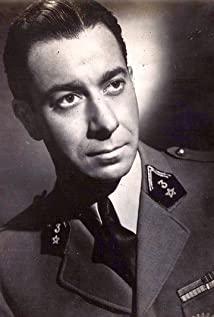At the invitation of a friend, I watched the "Shadow Army" at the China Film Archive on New Year's Eve. Of course, you should be tolerant of old films. Although the expression techniques and shooting skills at that time were not perfect, it did not hinder the profound content. Twenty years after the Second World War, such works appeared. Those who can get the taste are enough to shatter the imagination about the nation and the fantasy about the country. After all, France is still a pioneer in Europe, but if there is no reflection on the totalitarian regime and the stimulation of the Cold War, the feelings and memories of the past may not be spoken, reconstructed, and even put on the silver screen. I don't intend to make a long discussion here, just add a little memory, and a few words are self-satisfying. One: After watching the movie, a friend once lamented that the protagonists could not reach the dawn, but in fact there is no dawn, only endless darkness. In the first paragraph, Gerbier and Felix and their assistant Bison took control of the young man who betrayed them, went to the hotel where Masque was in charge of contact, and finally put him in a towel with a towel. Hanged on a chair (Masque said that tables and chairs were ready for inquiry, while Gepier shook his head, thinking there was no need for a trial). It was still daytime, so all the curtains were drawn during the "execution". After the corpse was hidden, the curtains were opened again, but it was still dark outside, and it was already night. This detail is intriguing, and has hinted at the fate of everyone. There is another point worth noting here: after the whistleblower was controlled, he did not resist in the slightest even when others discussed how to execute him in front of him. If it's just survival, any noise made by resistance is enough to increase its chances of survival. But he did not do so, weeping with tears, waiting for the lamb to be slaughtered, obediently holding the rags handed by his former comrade. There is no other better explanation. The root of his behavior is that he is not clear enough about death. This young man has probably never thought deeply about what "death" is. And he didn't have any chance to turn around, even if he was such a young man, in that case, he couldn't miss the second, and he couldn't repent. two: The once glorious pilot Francois joined the resistance group. When he visited his brother Luc, although they smiled at each other, they were very different. He felt that the brother in front of him was not as cordial and friendly as the comrades in the organization. reality. Marx relentlessly criticized and ridiculed the maxims of the "old society" "property, family, religion, order", but people could never get rid of their needs and desires. However, in the new era, there will be new substitutes. The old family is frightening, and it seems that they want to "eat people". Some people then invest in the new "family". Comradeship has replaced family affection, but there are more illusions than reality. For the sake of safety and higher goals, comradeship must be erased, and life and death meet. If it is colder, it is a heavy strain of social relations, and if it is more explicit, this is alienation. Coincidentally and absurdly, Luc and François were really comrades. When François rowed a small boat to connect the "boss" to the British submarine, he had some strange feelings: such an important person was actually with the He is so close at the tip of the organization. In the dark morning, neither of them could see each other. When the "boss" entered the submarine, the lights were bright, it was Luc, Francois's brother! It may be said that blood is just an imagination, but it is undoubtedly the most natural imagination. The film probably does not intend to show that comrade is an imaginary thing, but it can be interpreted as such. Three: Gepier revered the "boss" very much. Before the war, Luc was proficient in music and mathematics (presumably also proficient in philosophy), and had aristocratic cultivation and taste. In the lonely moment of transfer to the wilderness hut, it was the "boss"'s several mathematical works that accompanied Gepier. He objected to Luc's involvement in their assassination of his old comrade Mathilde, and he felt that the blood-stained "boss" would no longer be sacred. Jebier is lost, and this involves the issue of idols. Religions usually set up idols, because religion must have the other side. If you set up a raft to cross the river, the river cannot be crossed, and the kingdom of heaven will naturally be in the afterlife. A core of the religious spirit is to place objects for visualization. It is not necessary that the brilliant sculptures in temples are idols. Zen Buddhism stares at a tile and a stone, and the stone becomes an idol because of the gaze of people. is his idol. If one takes that which is distinct and dependable "up into consciousness, to represent it, to think about it, to admit it, one enters religion." (Ludwing Andreas Feuerbach) Feuerbach here refers to nature, but the material of religion is more than nature, it does not need to be different from "man", it is enough to be different from "I". The idol drives the worshiper toward it and provides the worshiper with the impetus to act. When Gepier and Luc went to England by submarine and received the honor of de Gaulle at the headquarters of "Free France", de Gaulle's front face hardly appeared, only the huge back. Gépierre stood alone, and his idol was not de Gaulle, but Luc. But when he was about to be shot and rushed forward in a daze, his desire to survive was so strong that he suddenly felt that even if the "boss" died, he still wanted to live. He has broken through the idol. Four: Madame Mathilde was arrested. Before that, she had a calm plan, both wisdom and courage, and had saved the lives of Bisson and Gepier. She is not succumbing to the Nazis, but she has a picture of her daughter in her wallet (previously, Gepier reminded her not to carry pictures). The Nazis threatened her with her daughter and sent her to a Polish military brothel if she didn't cooperate. After Mrs. Mathilde gave in, she was released, and the resistance group decided to remove it. However, Bisson and Gepier had a dispute. Humanity and organization were about to be irreconcilable. , while Gepier is really armed). Fortunately, the "boss" who was hiding behind the door came out and used his persuasive skills to appease Bisong. He said that Mathilde was actually waiting for the organization to kill her (Mathilde's religion did not allow her to commit suicide), otherwise, why didn't she provide important clues, but asked the Nazis to release her to rebuild contact? On the streets of Paris in winter, the four people in the gray car meet Mathilde again. Bisson raised the gun, Mathilde's expression was complicated, frightened, hesitant, and relieved (the "Boss" came in person). Luc's speculation about Mathilde is in line with the morality of the organization, but I prefer to think that Mathilde didn't expect that the comrade she once saved wanted her to die at this moment. The reason is already hinted in the movie. With Mathilde's tact and experience, she still didn't take out her daughter's photo. This is not negligence, but a choice. The deepest consolation is nothing more than the photos you can take out and read when you are lonely and cowardly. Gepier can't understand her, Mathilde's sophistication and bravery are only superficial, she is rooted in family and religion, how can she believe that the organization is ruthless until the last minute. At the beginning of the film, Legrain, a young man in the concentration camp, asked Gepier: "Are you a Communist?" Jepier said calmly: "No, but I still have many comrades." However, subordinate The guidance of which ideology is not the most important, the key lies in the form of the organization. An underground organization with strict hierarchy and action, no matter how lofty the goals it recognizes, must be maintained by the most rational means. When organization overwhelms human nature, it has become a butcher (Jepier's self-reflection). The distortion of human nature can be done in the name of justice, and many people feel that they really do justice. What Hannah Arendt calls "the evil of banality" is not only applicable to Nazis like Adolf Eichmann, whether voluntary or forced, collectively unconscious or collectively purposeful, once To give up the "benevolence" of the individual is to have committed sins and have fallen into the devil. Only the individual is the bearer of moral responsibility. The sin and loftiness, courage and cowardice of the Jebiers can only be washed away by death, and death is the liberation of the dust net for them (the film is just arranged in this way). Resistance and fighting are necessary and necessary at the level of the nation-state, and it is difficult for human beings to surpass this level. It's just that the blood on the front is an honor, but the management on the back is not visible. In this state, the individual is shrouded in a higher net of dust, and the ethical dilemma encountered by the resistance organization may be a dead end. It can only be sin for sin and sin for sin. . "I want benevolence, and benevolence is perfect." Isn't it difficult? Mencius said: "Doing one thing unrighteously, killing one innocent person and gaining the world is not a good thing." Although the sage does not do it, the devil is happy to do it. These are all evils of the net of dust. If there is no free order, the world will be full of evil flowers. The ancient dust net was not densely woven, so Mencius could also imagine that if Shun’s father Gusou killed someone, Shun would use his monarch to “disregard the world as well as his own. ." This achieves ethical perfection. However, the modern dust net makes people have nowhere to escape from the sky and the earth. It is impossible to break through the net, and it is like a puppet being driven. This is a very sad thing. Europe has to thank the Iron Curtain, otherwise their awakening would not have been so fast. On the other hand, Chixian, more than seventy years have passed, and he is intoxicated and addicted, but what can he do. "I want benevolence, and benevolence is perfect." Isn't it difficult? Mencius said: "Doing one thing unrighteously, killing one innocent person and gaining the world is not a good thing." Although the sage does not do it, the devil is happy to do it. These are all evils of the net of dust. If there is no free order, the world will be full of evil flowers. The ancient dust net was not densely woven, so Mencius could also imagine that if Shun’s father Gusou killed someone, Shun would use his monarch to “disregard the world as well as his own. ." This achieves ethical perfection. However, the modern dust net makes people have nowhere to escape from the sky and the earth. It is impossible to break through the net, and it is like a puppet being driven. This is a very sad thing. Europe has to thank the Iron Curtain, otherwise their awakening would not have been so fast. On the other hand, Chixian, more than seventy years have passed, and he is intoxicated and addicted, but what can he do.
Ding You Ji Dong Sui An Shi Ji
View more about Army of Shadows reviews




